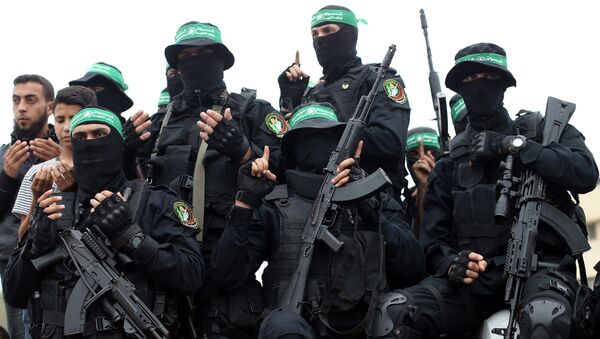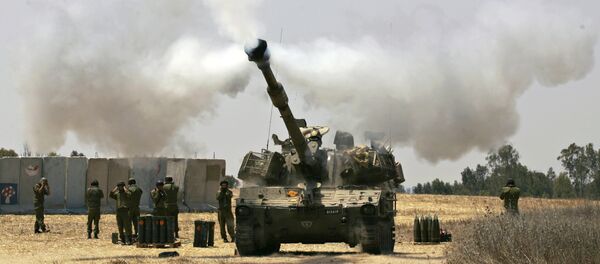Sputnik: What is your take on the conflicting reports about an armistice between Israel and Hamas? What is the likelihood of tensions being defused anytime soon?
Shlomo Avineri: It appears that the armistice is holding; one has to understand it in the context of Palestinian politics.
The Islamic movement Hamas has in the last few years established a de facto independent region in Gaza – independent from the Palestinian Authority in Ramallah under Palestinian President Mahmoud Abbas.
Hamas wanted, by initiating a series of demonstrations trying to break into Israel proper, sending booby traps to Israeli territory and also rockets in the last few days, to reestablish its position as the leading Palestinian group, probably looking to what's going to happen if Abbas has to resign or will disappear from the scene.
So it is an internal Palestinian de facto civil war, which has been launched in a way against Israel. And the Israeli response, which has been very, very tough, put an end to this attempt. I hope things will quiet down, mainly because of a very positive intervention of Egypt, which is certainly not interested in finding itself in a situation in which Hamas and Israel are fighting another war.
Sputnik: What is the likelihood of defusing tension anytime soon? Because the situation you just described could really go either way.
Shlomo Avineri: Precisely. The danger is very clear. But again, if Hamas thinks that it can view itself as the main leader of the Palestinian movement, belittling the position of the Palestinian Authority in Ramallah, there is a danger that it will try again to provoke violence against Israel, because this may be very popular among some sectors of the Palestinian population.
But it seems to me that the Egyptian pressure on Hamas – and Egypt has historical [presence] in Gaza, having ruled and occupied Gaza between 1948 and 1967, and having good contacts with the leadership of Hamas – it seems that the Egyptian pressure will cool the situation, because it is very clear that Egypt is not going to support another Hamas provocation against Israel. And Hamas does not want to find itself totally isolated.
The Iranian aspect also makes it very clear that the Israeli response is not going to accept another Iranian presence surrounding Israel.
Sputnik: The UN Security Council is expected to hold an emergency session over the firing of rockets at Israel from the Gaza Strip. What role can the international community play in easing the tension?
Shlomo Avineri: That's a very important issue. There has been clear criticism from European Union countries and the United States criticizing Hamas in attempting to break massively into Israeli territory. This is unacceptable; no country will accept masses of people, whatever their complaints, whatever their background, violently trying to enter another country. I think if the United Nations can find a formula (because beyond formulas the UN doesn't have much impact) that will criticize Hamas for its violent attempt to cross the border with Israel, to send booby traps and dozens of rockets to Israel – this will be a very, very important message to Hamas that it is basically isolated. I cannot see any country supporting Hamas on this issue. The five permanent members on this issue I think can agree, and this can include Russia and China as well. These are very clear violations on the part of Hamas of the border with Israel; this is utterly unacceptable.
Shlomo Avineri is a senior professor of political science at Hebrew University in Jerusalem, and a member of the Israel Academy of Sciences and Humanities. The views and opinions expressed by Dr. Avineri are those of the contributor, and do not necessarily reflect those of Sputnik.





